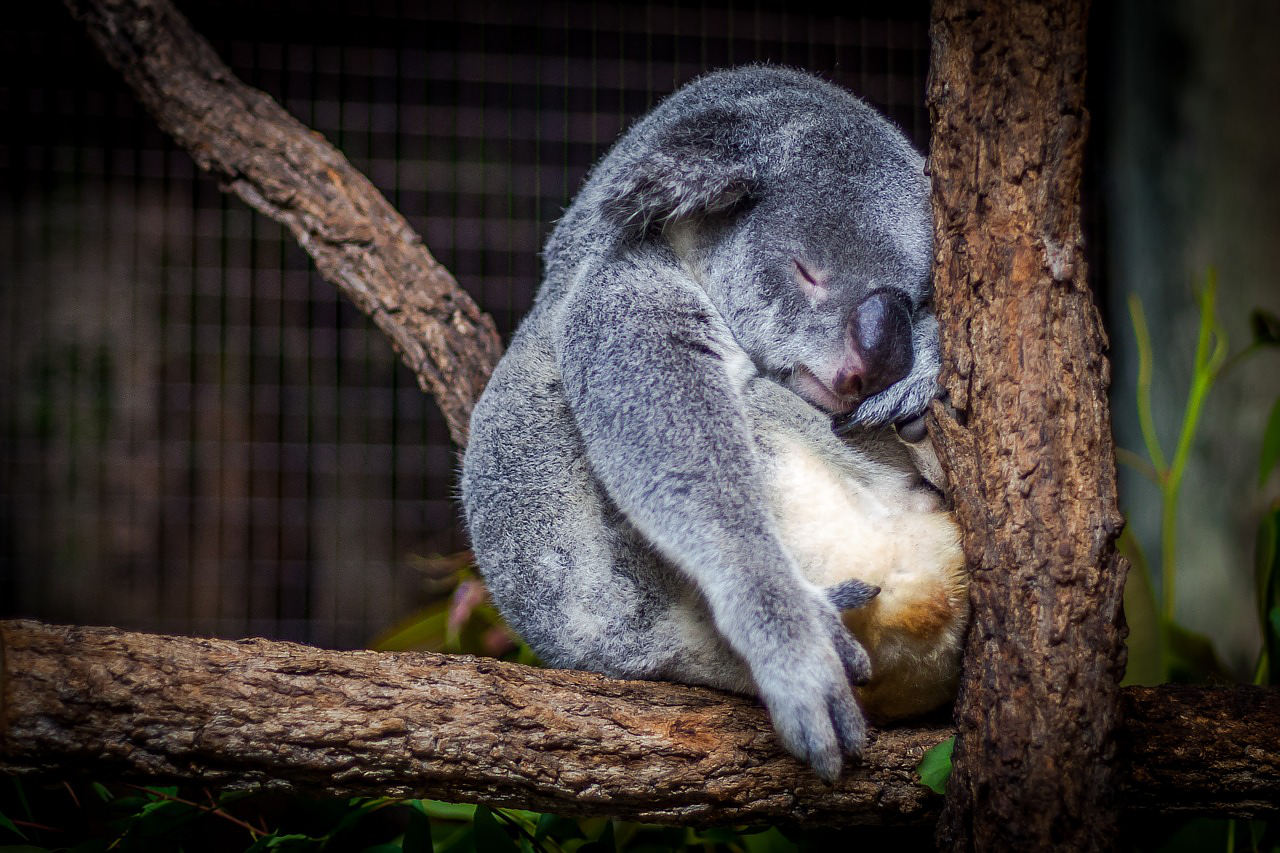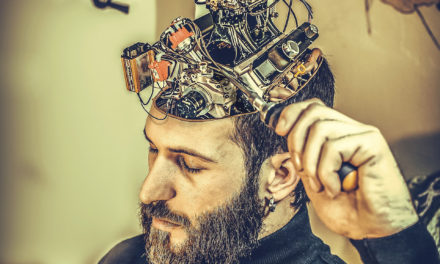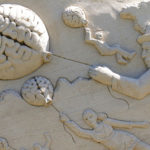Sleep Aids That Work
What Science Says
Sleep aids that work? Science says they’re out there and many don’t require a prescription. But before we get into that, let’s talk a bit about the why bother of the matter.
“Sleep is the single most effective thing you can do to reset your brain and body for health,” if you ask Why We Sleep author Matthew Walker, a Berkeley professor of neuroscience and psychology [1,2].
And if you have any hope of rewiring your brain, you’re gonna need it, 7 to 9 hours a night to be precise, unless you’re part of the anointed less-than-1% of the population who appear to do just fine with as little as 4 to 6 hours [3].
So the problem with sleep deprivation?
Not sleeping enough is linked to an increased risk of memory loss and an impaired ability to form new memories in the first place. It can lead to anxiety and accident-prone clumsiness and by extension, bodily injury. Weight gain, difficulty concentrating, and irritability are yet other side effects. Even worse, insufficient or low-quality shut-eye promotes poor judgment in the form of compromised decision-making and reasoning skills, ultimately pointing to cognitive decline. Chronic insomnia might even shrink your brain [4].
Sleep deprivation is also linked to depression, colds, flus, heart disease, diabetes, stroke, obesity, and kidney disease, just to name a few of the litany of diseases and disorders inextricably connected to the all-too-common affliction.
Roughly one in three people are currently sleep-deprived right now. How many folks are driving their cars in various states of sleep-deprived brain fog on the road at this very moment? Kind of scary when you think of it.
Solution? SLEEP. But how?
Read Also: 7 Ways to Feel Better RIGHT NOW Using Neuroscience
And: Listen to Heart to Read Minds? Science Closer to Saying Yes
Also: Want a Better Memory? Do This One Thing
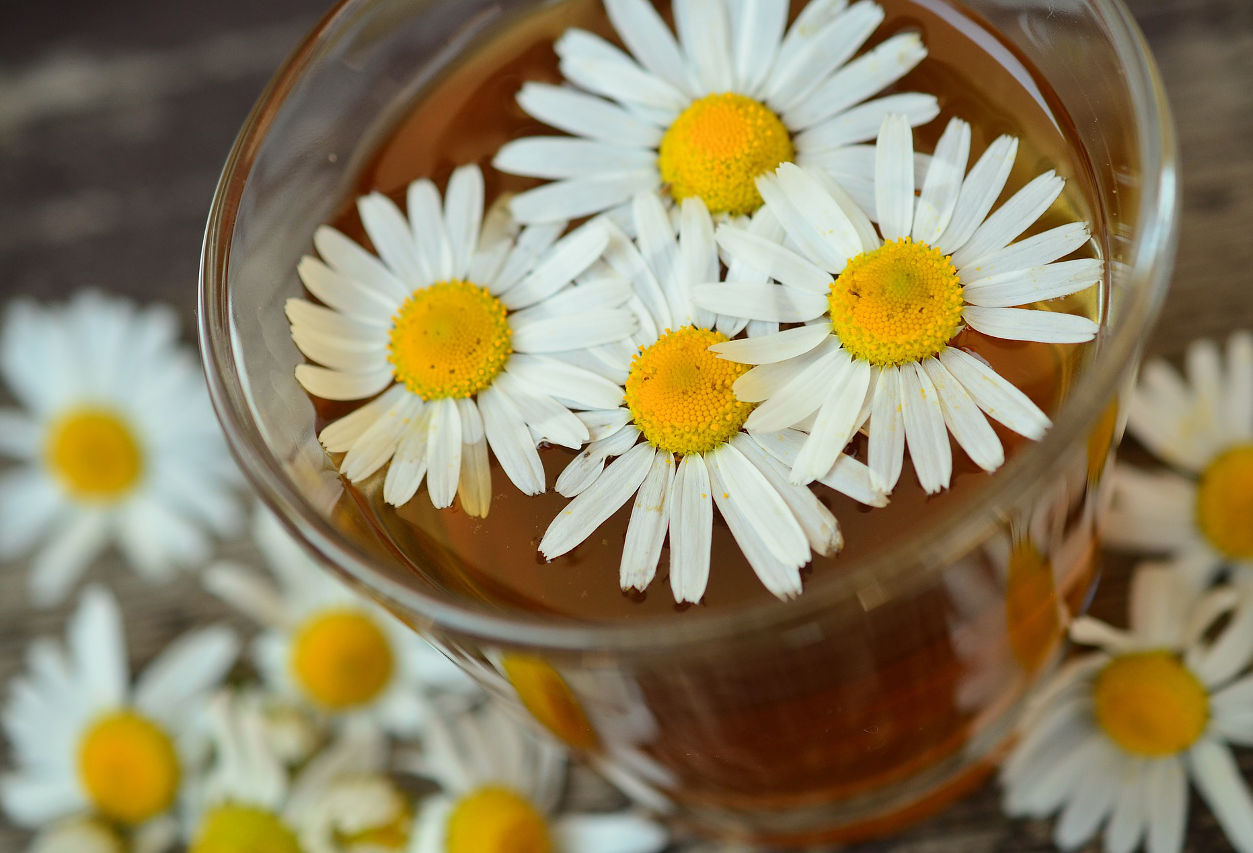
Above: chamomile flowers look suspiciously similar to the common daisy, an unsurprising observation given they’re related.
(Photo courtesy of Pixabay)
Getting sufficient high-quality sleep every night is the byproduct of an optimal lifestyle. And every single facet of life is better for it. Integrate the following substances and strategies into your everyday and don’t be surprised if, over time, nightly struggles turn into soothing slumbers, anxiety and fatigue overpowered by a growing sense of refreshment and rejuvenation.
Chamomile Tea
The white-petalled, yellow-centered member of the daisy family has been used for millennia [5]. If ancient Egyptians weren’t embalming dead pharaohs with its oil, then they were crushing the flowers into a fine powder for everyday cosmetics and wound-healing or drinking it to relieve the common cold. They also turned to the humble Nile-growing flower to alleviate fever, as did Hippocrates, the father of Western medicine, Roman physician Galen and his contemporary, Pliny the Elder. Meanwhile, their Roman peers used the flower as incense and to flavor beverages.
Medicine, cosmetics, edible flavoring… is there anything chamomile can’t do?
One property relevant to sleep aid among the dozens of alleged benefits attributed to chamomile [6] –including extending life– is the flower’s calming effect. Anecdotes abound the centuries that chamomile winds down racing thoughts, shooing away anxiety and settling the mind for a good night’s sleep.
And research is slowly catching up with the claims, with a growing battery of studies confirming that chamomile does appear to have anti-anxiety properties. More evidence is needed before we can confirm if it’s a sedative, but an anxiolytic? Corroborations multiply. Furthermore, few can argue with the soothing effect of a warm cup of chamomile tea.
I drink a café-au-lait-sized cup of loose leaf Egyptian chamomile one or two hours before bed when I’m feeling stressed or worn out from the day’s events. It produces this relaxing feeling that seems to encourage sleep as opposed to inducing it outright.
A few caveats. I wouldn’t recommend drinking it too close to bedtime. The reason why I sip a cuppa at least one hour prior is because the tea is a mild diuretic. I’d rather not have to wake up in the middle of the night to relieve myself if I can help it. Also, a small percentage of people, maybe three, four, or five out of 100 might experience an allergic reaction. However, more research is needed given that at least one study noted that it does not appear to provoke a reaction when ingesting the flower orally. Yet other research claims chamomile may actually reduce allergic reactions [7]. Finally, we have no evidence to confirm if chamomile is safe or unsafe in children and pregnant or nursing women due to a dearth of studies on the subject.
Sufficient production and release of the “happy neurotransmitter” serotonin isn’t just associated with positive mood. It’s also involved in balancing the sleep-wake cycle. Is it any wonder mood and sleep seem so intertwined?
Here Fishy Fishy
Key neurochemicals play a role in getting to sleep as well as staying asleep. Sufficient production and release of the “happy neurotransmitter” serotonin, for example, isn’t just associated with positive mood. It’s also involved in balancing the sleep-wake cycle. [8, 9].
Is it any wonder mood and sleep seem so intertwined?
Low levels of serotonin are associated with insomnia as well as a host of mood, cognitive, and attention disorders. Think anxiety, autism spectrum disorder, ADHD, schizophrenia, bipolar disorder, and depression.
It’s no coincidence the most commonly-prescribed antidepressants focus on making more serotonin available in the brain.
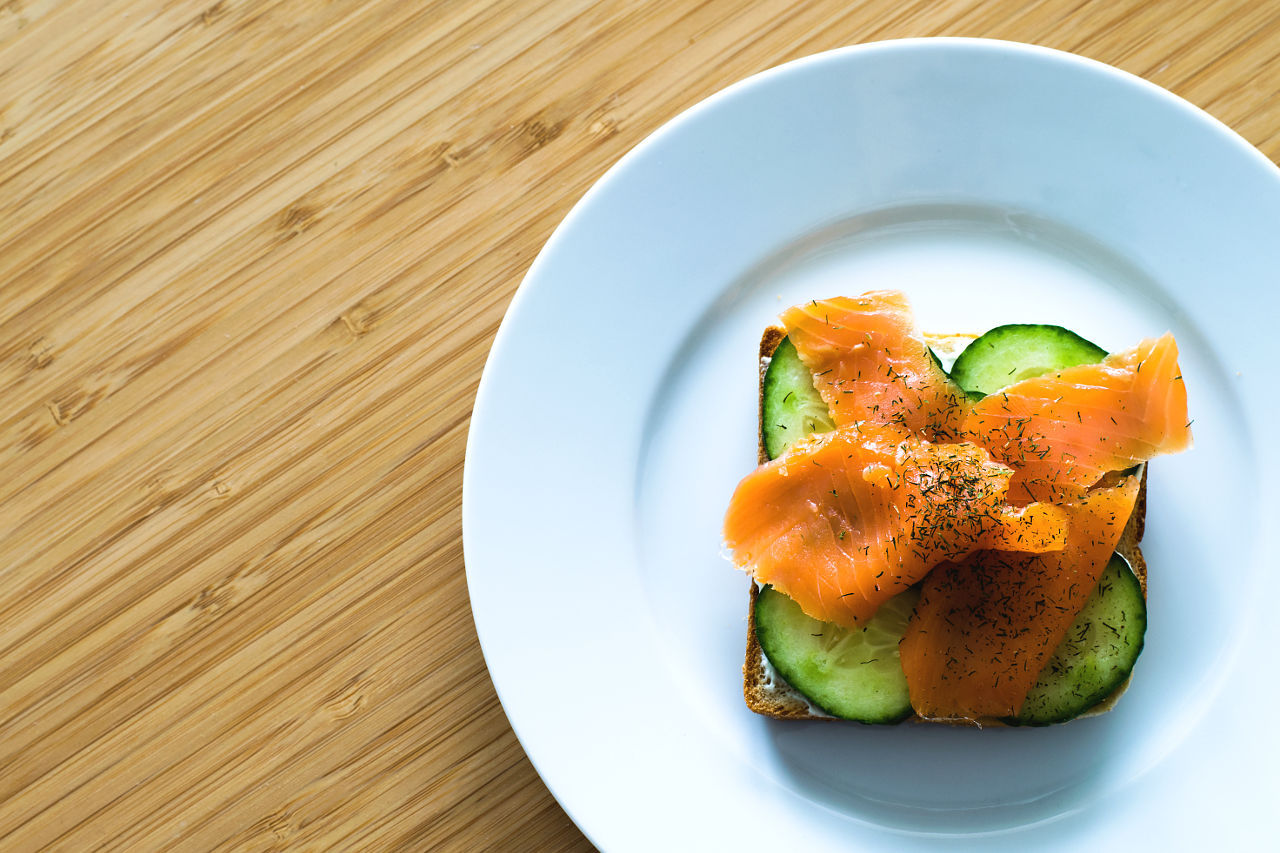

Clockwise from top left: salmon, kiwifruit, and carb-heavy sweet potato and pasta, foods believed to be sleep aids.
(Photos courtesy of Pixabay and Pexels)
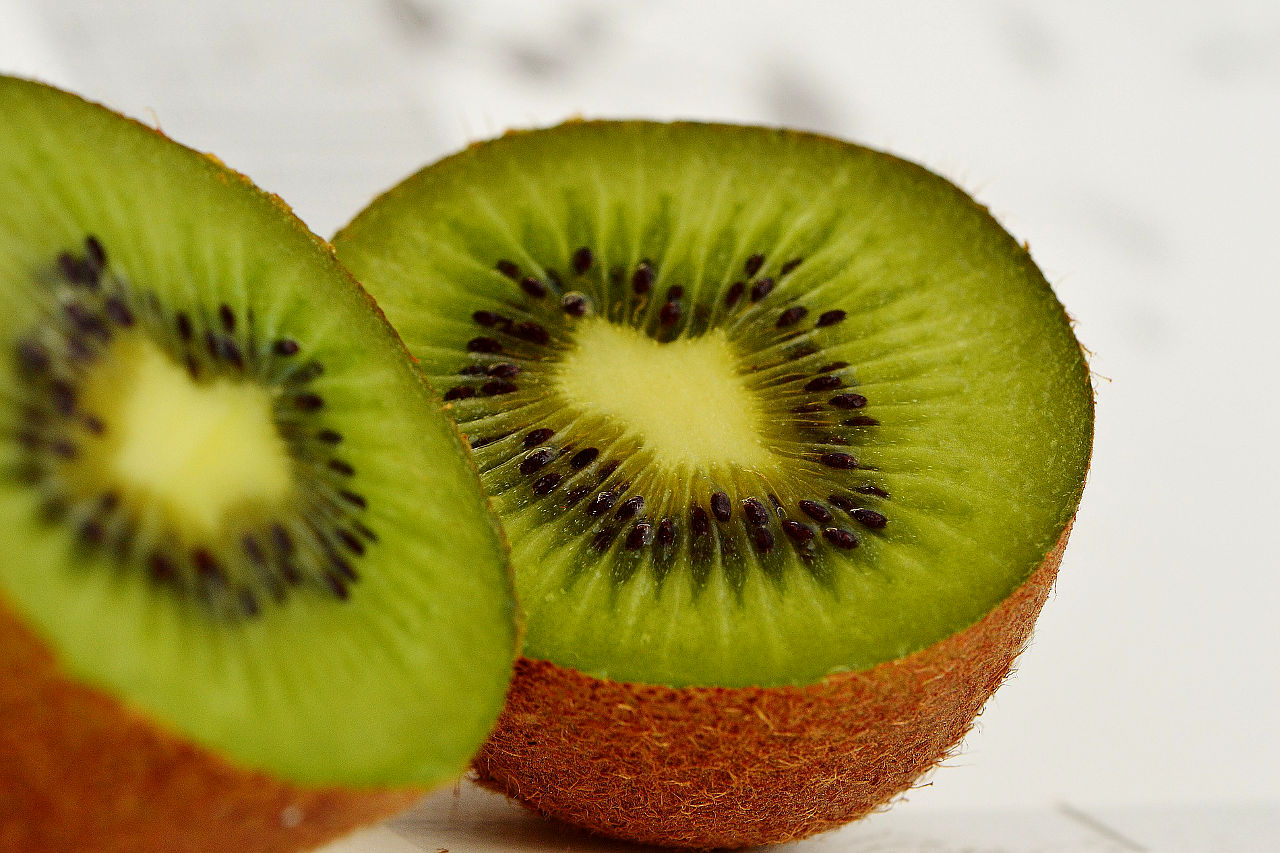
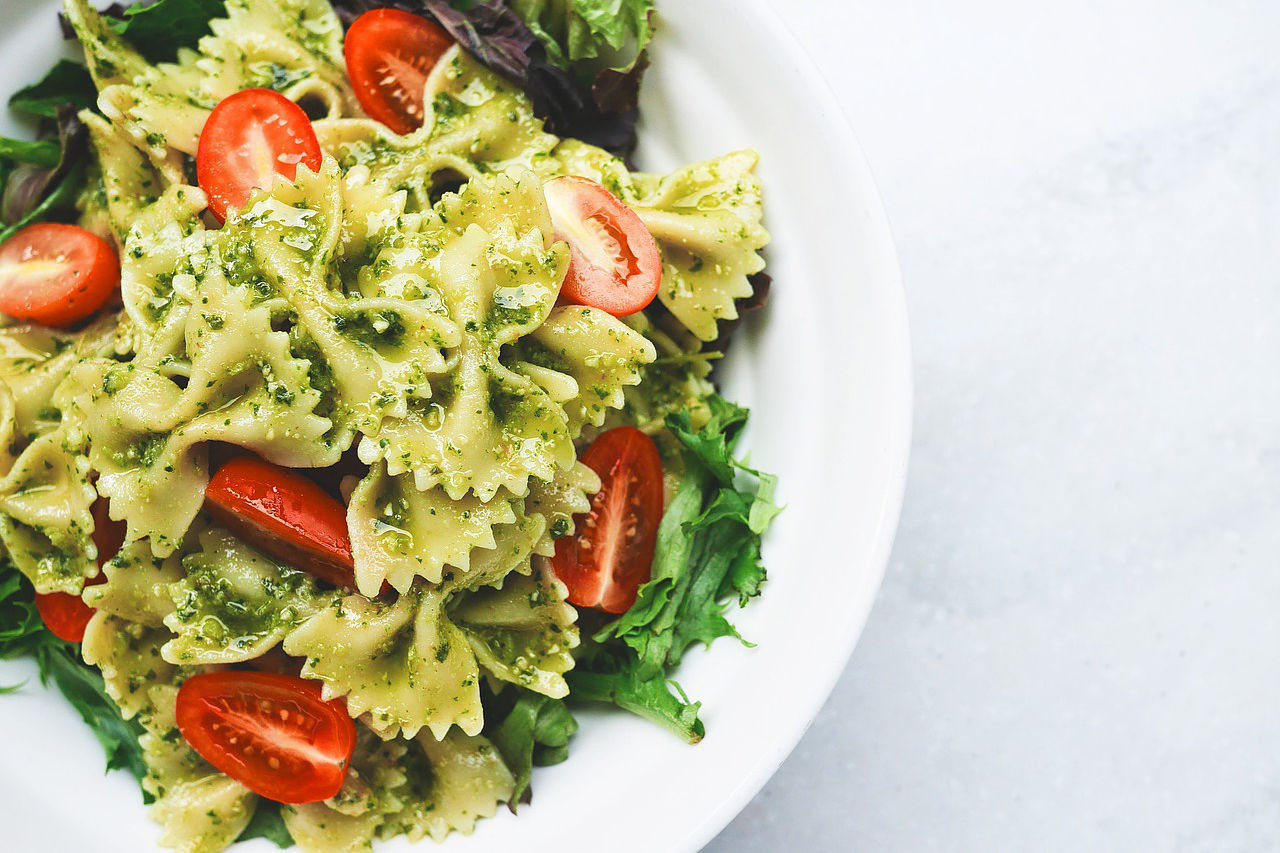
By extension, certain foods crucial to serotonin synthesis appear to also enhance sleep quality. Fatty fish springs to mind. Not only do they contain tryptophan, a precursor to serotonin but oily fish is rich in omega-3 fatty acids and vitamin D. Both are strongly associated with optimal mood and executive function as well as cardiovascular health. And while they aren’t serotonin precursors themselves, they’re critical to tryptophan being optimally converted into the so-called happy neurotransmitter, potentially preventing brain dysfunction in the process [11]. Other sources of protein like turkey and red meat also contain tryptophan, but they don’t have much in the way of omega-3 or vitamin D, preventing the bulk of this vital amino acid from being converted into serotonin.
A 2016 study examining the eating and sleeping habits of 677 Ecuadorians highlights this tryptophan-omega-3-vitamin-D trifecta, noting that people who slept well ate more oily fish than participants reporting low sleep quality [12].
A correlation isn’t causation though. Any number of lifestyle factors may lead to better sleep. Maybe folks who eat more fish also exercise more or have healthier habits in general. It’s hard to say without further isolating key variables.
Hence the utility of a 2014 University of Bergen study with a more robust design involving 95 men [13]. One randomly assigned group was fed 150g to 300g of farmed Atlantic salmon three times a week across six months, from September through February. And a randomly assigned control group ate an assortment of meats instead (e.g., chicken, pork, beef) over the same period. All participants wore physiological monitoring systems to bed measuring a host of markers, measures like heart rate, the time it takes to fall asleep, and total sleep time. Blood samples were also taken to assess nutrient status. Finally, participants were asked to share their subjective sleep experience.
Result? The meat-eating group actually saw its collective sleep quality decline by the time they completed the study. They were, on average, taking longer to fall asleep. And other sleep measures –sleep efficiency, total sleep time– suffered as well. By contrast, the salmon-eating group slept better overall across all measures, though the data compiled revealed that both groups saw a decline in sleep quality by the end of the study. But here’s the thing. The fish group didn’t see as big of a drop. Even their daily functioning was better than the meat group.
But then why the drop if fish is so great for sleep?
Consider context. The study concluded three months into winter when sunlight hours, and subsequently vitamin D levels, are typically at their lowest for people living in northern latitudes, leading to a spike in sleep disturbances and mood problems like seasonal affective disorder [14]. Given that the men recruited were all located in Wisconsin, a northern state, it’s not surprising that collectively, both groups’ average Vitamin D status was below optimal by February. But look more closely at the drop and you’ll see that the fish group’s Vitamin D levels were still very close to optimal (71 nmol/L instead of >75 nmol/L) in spite of winter’s short, sun-deprived days whereas the meat group’s Vitamin D levels fell much further below dietary recommendations (55 nmol/L instead of >75 nmol/L).
Conclusion at this point? Embrace the tryptophan-omega-3-vitamin-D trifecta. Eat fishies and you might just sleep, feel, and perform daily activities better. Fatty types ripe for inclusion in a sleep-healthy diet include salmon, trout, herring, tuna, sardines, and mackerel.
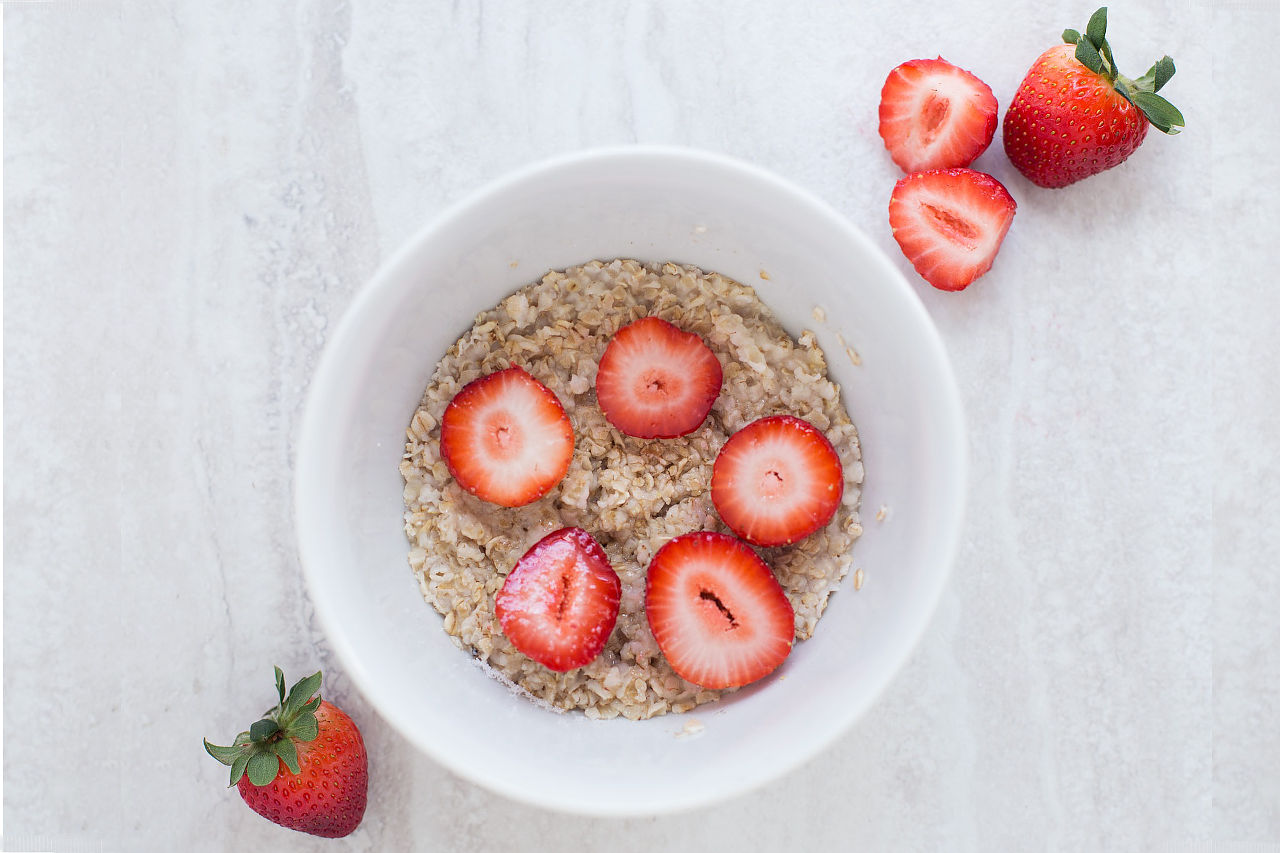
Oatmeal, a healthy source of carbohydrates. (Photo courtesy of Pixabay)
Carb Time
Ever eat a huge plate of pasta at lunch only to struggle to keep your eyes open at your desk by 3 p.m.? We’ve all been there.
Our understanding of the science behind the snooze attack is simple: meals high in carbohydrates (e.g., pasta, rice, oatmeal, bread, etc.) provoke insulin production and higher sugar levels entering the bloodstream, which believe it or not also enhances the absorption of tryptophan from foods eaten earlier in the day, high-tryptophan edibles like shrimp, fish, spinach, eggs, spirulina, tofu, game meat, and parmesan.
Without the carbs, or in the case of fish, without omega-3 fatty acids and vitamin D (which may very well be helping conversion along or at the very least balancing out its production), little if any tryptophan passes through the blood-brain barrier to convert to serotonin. And serotonin as well as tryptophan, as mentioned earlier, have long been established as critical sleep modulators.
A team from the University of Sydney proposed in a 2011 study that carb-heavy meals be saved for supper, eaten about four hours before sleep time to speed up sleep onset come bedtime [15].
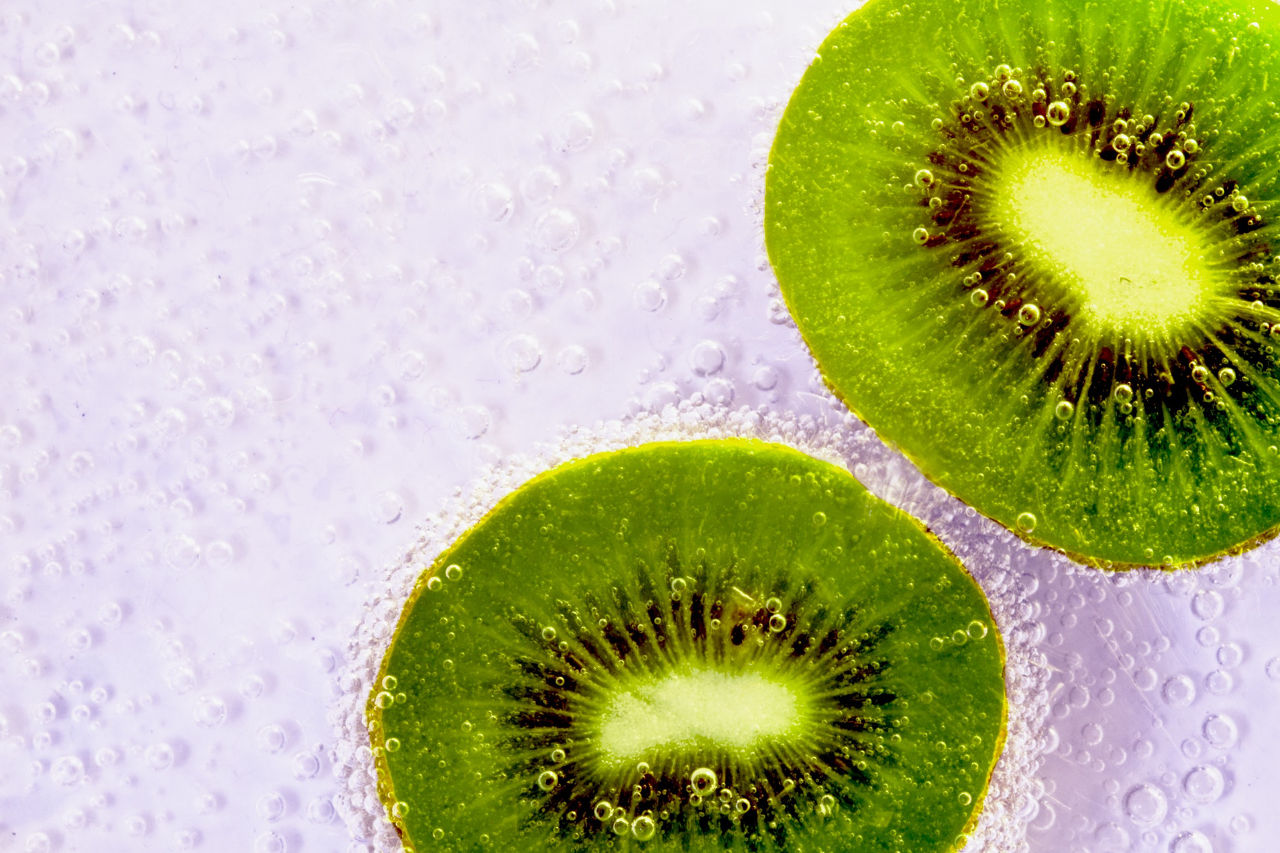
(Photo courtesy of Pixabay)
It’s a Kiwifruit Miracle. Or Not.
An auspicious 2011 study from Taipei University [16] was ridiculously blown out of proportion by various news reports and magazines touting the sleep benefits of two kiwis one hour before bed.
Yes, a research team sponsored by “the world’s largest marketer of kiwifruit” got 22 women and two men to eat a couple of kiwis one hour before bedtime every night for four weeks. And yes, “waking time after sleep onset, and sleep onset latency were significantly decreased (42.4%, 28.9%, and 35.4%, respectively),” while “total sleep time and sleep efficiency were significantly increased (13.4% and 5.41%, respectively).” By the way, that means total sleep time increased by 41 minutes, from roughly six hours a night to 6 hours and forty minutes. Not quite 7 to 9 hours a night, but I digress. And that’s all we’ve got to go on, 24 people with sleep disturbances who volunteered to participate in a dietary intervention study with no control group to compare them against.
I spent a week looking for replicated studies or any subsequent research on the sleepy-eyed miracle of the kiwi. I didn’t find anything. Even the researchers themselves said more research may be warranted. To turn that one small intervention into a sleep aid recommendation is, let’s be honest, silly.
Maybe part of the hype is over kiwis containing serotonin. Eating serotonin doesn’t do much. Ingested serotonin can’t cross the blood-brain barrier [17]. True, roughly 95% of the body’s serotonin is produced in the gut, but it’s the tiny percent produced in the brain which ultimately impacts mood, sleep, and cognition, at least to our current understanding which is, let’s be honest, limited.
So let’s see more studies!
In the meantime, what’s the likelihood that adding a couple a day to a diet could hurt? The small juicy fruit is a micronutrient powerhouse. Beats late-night snacking on junk food.
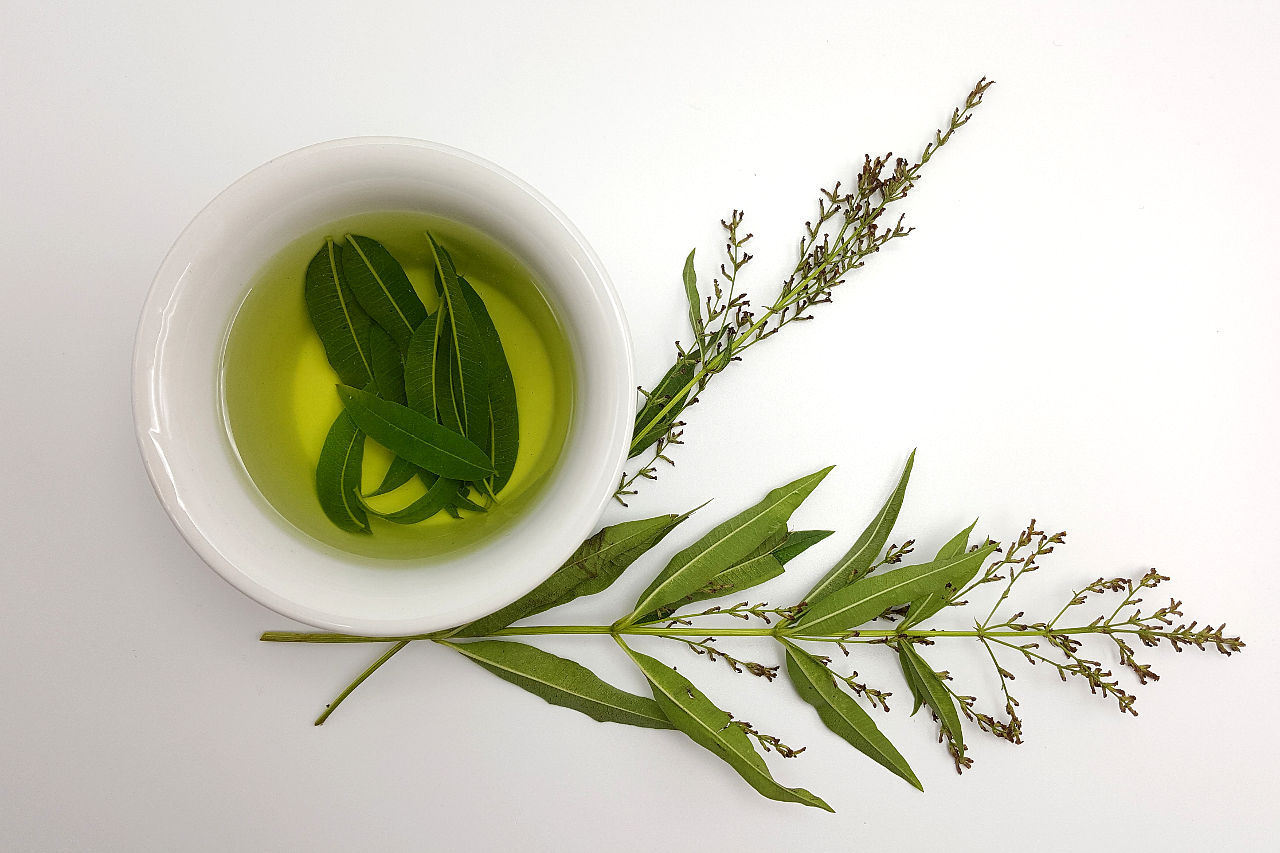
Above: fresh lemon verbena tea. (Photo © Evelyn Reid, all rights reserved. May not be used without photographer’s explicit written permission).
Lemon Verbena
If I’m not drinking chamomile tea in the evening, then I’m sipping on lemon verbena in its place. I even buy it fresh and dry the leaves myself. Its lemony scent both uplifts and relaxes, soothing my humble spirit (and tummy after dinner) to the point where I drink it every week as a calming agent.
Native to Argentina and Chile, the Spanish brought the plant over to Europe sometime in the 17th or 18th century. Used in perfumes, finger bowls, beverages, dishes, and assorted desserts, Victorian women apparently packed lemon verbena’s fragrant leaves into handkerchiefs to inhale the plant’s perfume in moments of discomfort in the heat [18]. Herb enthusiasts often attribute sedative, anti-anxiety, and digestive aid properties to the fragrant plant [19].
Does science support my and history’s anecdotal claims? No. But they haven’t disproven them either. If anything, there’s an absence of research examining the lemon-scented plant’s reportedly anti-anxiety and sleep aid effects.
Of the bits of research that are out there include a robustly-designed randomized, double-blinded, placebo-controlled study of the effect of a combination of lemon verbena extract and fish oil omega-3 fatty acid on joint pain, of all things [20]. The Spanish research team confirmed that lemon verbena is rich with anti-inflammatory and antioxidant properties and that of the 45 study participants, those who took a lemon verbena extract and fish oil omega-3 fatty acid –there’s that fatty fish again– every day for 9 weeks saw a greater reduction of joint pain and stiffness as well as improved mobility compared to the placebo group.
Additional studies have pointed to lemon verbena’s potential as a weight loss aid [21], an anti-inflammatory [22], destroyer of bacteria that causes stomach ulcers [23] and fungus—the dreaded candida albicans—that causes fatigue and weight gain [24], and as a muscle recovery aid and oxidative stress buffer after exercise [25]. But as a sleep aid? Again, all we’ve got is anecdote for now.
If you’re too impatient to wait for research to confirm my hunch—or hey, maybe relief from joint and muscle pain is exactly what you need to help you fall asleep—then throw 5 to 7 lemon verbena leaves into a big mug and pour scalding hot water on top. Wait 3 minutes or so, add honey or stevia to taste, and enjoy. No need to remove the leaves either. If anything, you want to keep them in there to maximize polyphenolic compound extraction. Just watch out for lemon verbena’s mild diuretic effects and drink it an hour or two before hitting the sack to avoid middle-of-the-night trips to the bathroom.
—
You’ve just finished Part 1 of Sleep Aids That Work: What Science Says. Join my Facebook community and sign up for Where’s Your Head’s free newsletter at the bottom of this page to find out when Part 2 goes live.

References
- Park A. The sleep cure: The fountain of youth may be closer than you ever thought. TIME February 16, 2017.
- Walker M. Why we sleep: Unlocking the power of sleep and dreams. Penguin Random House: London. 2017. Print.
- Pellegrino R, Kavakli IH, Goel N, Cardinale CJ, Dinges DF, Kuna ST, Maislin G, Van Dongen HP, Tufik S, Hogenesch JB, Hakonarson H, Pack AI. A novel BHLHE41 variant is associated with short sleep and resistance to sleep deprivation in humans. Sleep 2014; 37 (8): 1327–1336.
- Sexton CE, Storsve AB, Walhovd KB, Johansen-Berg H, Fjell AM. Poor sleep quality is associated with increased cortical atrophy in community-dwelling adults. Neurology 2014 Sep 9; 83(11): 967-73.
- Crellin JK, Philpott J. Herbal Medicine Past and Present, Vol. 1: Trying to Give Ease. Duke University Press Books: Durham. 1990. Print.
- Srivasta JK, Shankar E, Gupta S. Chamomile: A herbal medicine of the past with a bright future. Molecular Medicine Reports 2010; 3(6); 895-901.
- ChandrashekharK VM, Halagali KS, Nidavani RB, Shalavadi MH, Biradar BS, Biswas D, Muchchandi IS. Anti-allergic activity of German chamomile (Matricaria recutita L.) in mast cell mediated allergy model.
- Silber BY, Schmitt JA. Effects of tryptophan loading on human cognition, mood, and sleep. Neuroscience and Behavioral Reviews 2010; 34: 387-407.
- Jenkins TA, Nguyen JCD, Polglaze KE, Bertrand PP. Influence of tryptophan and serotonin on mood and cognition with a possible role of the gut-brain axis. Nutrients 2016; 8(1): 56.
- Hartmann E. Effect of L-Tryptophan on sleepiness and on sleep. J Psychiatr Res 1982/83; 17: 107-13.
- Patrick RP, Ames BN. Vitamin D and the omega-3 fatty acids control serotonin synthesis and action, part 2: Relevance for ADHD, bipolar disorder, schizophrenia, and impulsive behavior. FASEB J. 2015; 29(6): 2207-22.
- Del Brutto OH, Mera RM, Ha JE, Gillman J, Zambrano M, Castillo PR. Dietary fish intake and sleep quality: a population-based study. Sleep Med (2016) 17:126–8.
- Hansen AL, Dahl L, Olson G, Thornton D, Graff IE, Frøyland L, et al. Fish consumption, sleep, daily functioning, and heart rate variability. Journal of Clinical Sleep Medicine 2014; 10(5): 567–75.
- Stumpf WE, Privette TH, authors. Light, vitamin D and psychiatry: Role of 1,25-dihydroxyvitamin D3 (soltriol) in etiology and therapy of seasonal affective disorder and other mental processes. Psychopharmacology. 1989;97:285–94.
- Herrera CP, Smith K, Atkinson F, Ruell P, Chow CM, O’Connor H, Brand-Miller J. High-glycaemic index and -glycaemic load meals increase the availability of tryptophan in healthy volunteers. Br J Nutr. 2011; 105(11): 1601-6.
- Lin HH, Tsai PS, Fang SC, Liu JF. Effect of kiwifruit consumption on sleep quality in adults with sleep problems. Asia Pac J Clin Nutr 2011; 20(2):169–74.
- Bornstein JC. Serotonin in the gut: What does it do? Front Neurosci. 2012; 6: 16.
- Spurrier J. Lemon verbena: So many reasons to add aromatic plant to garden. LA Times. October 3, 2013. Online.
- Hamin S. Lemon Verbena: From Sorbet to Soap. The New York Times. July 7, 1997. Print.
- Caturla N, Funes L, Pérez-Fons L, Micol V. A randomized, double-blinded, placebo-controlled study of the effect of a combination of lemon verbena extract and fish oil omega-3 fatty acid on joint management. Journal of Alternative and Complementary Medicine. 2011;17(11):1051-1063.
- Herranz-López M, Barrajón-Catalán E, Segura-Carretero A, Menéndez JA, Joven J, Micol V. Lemon verbena (Lippia citriodora) polyphenols alleviate obesity-related disturbances in hypertrophic adipocytes through AMPK-dependent mechanisms. Phytomedicine 2015; 22(6): 605-14.
- Pesce M, Franceschelli S, Ferrone A, De Lutiis MA, Patruno A, Grilli A, Felaco M, Speranza L.Verbascoside down-regulates some pro-inflammatory signal transduction pathways by increasing the activity of tyrosine phosphatase SHP-1 in the U937 cell line. J Cell Mol Med. 2015; 19(7): 1548-56.
- Ohno T, Kita M, Yamaoka Y, Imamura S, Yamamoto T, Mitsufuji S, Kodama T, Kashima K, Imanishi J. Antimicrobial activity of essential oils against Helicobacter pylori. Helicobacter. 2003 Jun;8(3):207-15.
- Ghasempour M, Omran SM, Moghadamnia AA, Shafiee F. Effect of aqueous and ethanolic extracts of Lippia citriodora on candida albicans. Electron Physician. 2016; 8(8): 2752-2758.
- Funes L, Carrera-Quintanar L, Cerdán-Calero M, Ferrer MD, Drobnic F, Pons A, Roche E, Micol V. Effect of lemon verbena supplementation on muscular damage markers, proinflammatory cytokines release and neutrophils’ oxidative stress in chronic exercise. Eur J Appl Physiol. 2011; 111(4): 695-705.
Sleep aids that work? Science says they’re out there and many don’t require a prescription. But before we get into that, let’s talk a bit about the why bother of the matter.
“Sleep is the single most effective thing you can do to reset your brain and body for health,” if you ask Why We Sleep author Matthew Walker, a Berkeley professor of neuroscience and psychology [1,2].
And if you have any hope of rewiring your brain, you’re gonna need it, 7 to 9 hours a night to be precise, unless you’re part of the anointed less-than-1% of the population who appear to do just fine with as little as 4 to 6 hours [3].
So the problem with sleep deprivation?
Not sleeping enough is linked to an increased risk of memory loss and an impaired ability to form new memories in the first place. It can lead to anxiety and accident-prone clumsiness and by extension, bodily injury. Weight gain, difficulty concentrating, and irritability are yet other side effects. Even worse, insufficient or low-quality shut-eye promotes poor judgment in the form of compromised decision-making and reasoning skills, ultimately pointing to cognitive decline. Chronic insomnia might even shrink your brain [4].
Sleep deprivation is also linked to depression, colds, flus, heart disease, diabetes, stroke, obesity, and kidney disease, just to name a few of the litany of diseases and disorders inextricably connected to the all-too-common affliction.
Roughly one in three people are currently sleep-deprived right now. How many folks are driving their cars in various states of sleep-deprived brain fog on the road at this very moment? Kind of scary when you think of it.
Solution? SLEEP. But how?
Read Also: 7 Ways to Feel Better RIGHT NOW Using Neuroscience
And: Listen to Heart to Read Minds? Science Closer to Saying Yes
Also: Want a Better Memory? Do This One Thing

Above: chamomile flowers look suspiciously similar to the common daisy, an unsurprising observation given they’re related. (Photo courtesy of Pixabay)
Getting sufficient high-quality sleep every night is the byproduct of an optimal lifestyle. And every single facet of life is better for it. Integrate the following substances and strategies into your everyday and don’t be surprised if, over time, nightly struggles turn into soothing slumbers, anxiety and fatigue overpowered by a growing sense of refreshment and rejuvenation.
Chamomile Tea
The white-petalled, yellow-centered member of the daisy family has been used for millennia [5]. If ancient Egyptians weren’t embalming dead pharaohs with its oil, then they were crushing the flowers into a fine powder for everyday cosmetics and wound-healing or drinking it to relieve the common cold. They also turned to the humble Nile-growing flower to alleviate fever, as did Hippocrates, the father of Western medicine, Roman physician Galen and his contemporary, Pliny the Elder. Meanwhile, their Roman peers used the flower as incense and to flavor beverages.
Medicine, cosmetics, edible flavoring… is there anything chamomile can’t do?
One property relevant to sleep aid among the dozens of alleged benefits attributed to chamomile [6] –including extending life– is the flower’s calming effect. Anecdotes abound the centuries that chamomile winds down racing thoughts, shooing away anxiety and settling the mind for a good night’s sleep.
And research is slowly catching up with the claims, with a growing battery of studies confirming that chamomile does appear to have anti-anxiety properties. More evidence is needed before we can confirm if it’s a sedative, but an anxiolytic? Corroborations multiply. Furthermore, few can argue with the soothing effect of a warm cup of chamomile tea.
I drink a café-au-lait-sized cup of loose leaf Egyptian chamomile one or two hours before bed when I’m feeling stressed or worn out from the day’s events. It produces this relaxing effect that seems to encourage sleep as opposed to inducing it outright.
A few caveats. I wouldn’t recommend drinking it too close to bedtime. The reason why I sip a cuppa at least one hour prior is because the tea is a mild diuretic. I’d rather not have to wake up in the middle of the night to relieve myself if I can help it. Also, a small percentage of people, maybe three, four, or five out of 100 might experience an allergic reaction. However, more research is needed given that at least one study noted that it does not appear to provoke a reaction when ingesting the flower orally. Yet other research claims chamomile may actually reduce allergic reactions [7]. Finally, we have no evidence to confirm if chamomile is safe or unsafe in children and pregnant or nursing women due to a dearth of studies on the subject.
Sufficient production and release of the “happy neurotransmitter” serotonin isn’t just associated with positive mood. It’s also involved in balancing the sleep-wake cycle. Is it any wonder mood and sleep seem so connected?

Above: salmon, a fatty fish full of omega-3 fatty acids and vitamin D. (Photo courtesy of Pixabay)
Here Fishy Fishy
Key neurochemicals play a role in getting to sleep as well as staying asleep. Sufficient production and release of the “happy neurotransmitter” serotonin, for example, isn’t just associated with positive mood. It’s also involved in balancing the sleep-wake cycle. [8, 9].
Is it any wonder mood and sleep seem so connected?
Low levels of serotonin are associated with insomnia as well as a host of mood, cognitive, and attention disorders. Think anxiety, autism spectrum disorder, ADHD, schizophrenia, bipolar disorder, and depression.
It’s no coincidence the most commonly-prescribed antidepressants focus on making more serotonin available in the brain.
By extension, certain foods crucial to serotonin synthesis appear to also enhance sleep quality. Fatty fish springs to mind. Not only do they contain tryptophan, a precursor to serotonin but oily fish is rich in omega-3 fatty acids and vitamin D. Both are strongly associated with optimal mood and executive function as well as cardiovascular health. And while they aren’t serotonin precursors themselves, they’re critical to tryptophan being optimally converted into the so-called happy neurotransmitter, potentially preventing brain dysfunction in the process [11]. Other sources of protein like turkey and red meat also contain tryptophan, but they don’t have much in the way of omega-3 or vitamin D, preventing the bulk of this vital amino acid from being converted into serotonin.
A 2016 study examining the eating and sleeping habits of 677 Ecuadorians highlights this tryptophan-omega-3-vitamin-D trifecta, noting that people who slept well ate more oily fish than participants reporting low sleep quality [12].
A correlation isn’t causation though. Any number of lifestyle factors may lead to better sleep. Maybe folks who eat more fish also exercise more or have healthier habits in general. It’s hard to say without further isolating key variables.
Hence the utility of a 2014 University of Bergen study with a more robust design involving 95 men [13]. One randomly assigned group was fed 150g to 300g of farmed Atlantic salmon three times a week across six months, from September through February. And a randomly assigned control group ate an assortment of meats instead (e.g., chicken, pork, beef) over the same period. All participants wore physiological monitoring systems to bed measuring a host of markers, measures like heart rate, the time it takes to fall asleep, and total sleep time. Blood samples were also taken to assess nutrient status. Finally, participants were asked to share their subjective sleep experience.
Result? The meat-eating group actually saw its collective sleep quality decline by the time they completed the study. They were, on average, taking longer to fall asleep. And other sleep measures –sleep efficiency, total sleep time– suffered as well. By contrast, the salmon-eating group slept better overall across all measures, though the data compiled revealed that both groups saw a decline in sleep quality by the end of the study. But here’s the thing. The fish group didn’t see as big of a drop. Even their daily functioning was better than the meat group.
But then why the drop if fish is so great for sleep?
Consider context. The study concluded three months into winter when sunlight hours, and subsequently vitamin D levels, are typically at their lowest for people living in northern latitudes, leading to a spike in sleep disturbances and mood problems like seasonal affective disorder [14]. Given that the men recruited were all located in Wisconsin, a northern state, it’s not surprising that collectively, both groups’ average Vitamin D status was below optimal by February. But look more closely at the drop and you’ll see that the fish group’s Vitamin D levels were still very close to optimal (71 nmol/L instead of >75 nmol/L) in spite of winter’s short, sun-deprived days whereas the meat group’s Vitamin D levels fell much further below dietary recommendations (55 nmol/L instead of >75 nmol/L).
Conclusion at this point? Embrace the tryptophan-omega-3-vitamin-D trifecta. Eat fishies and you might just sleep, feel, and perform daily activities better. Fatty types ripe for inclusion in a sleep-healthy diet include salmon, trout, herring, tuna, sardines, and mackerel.

Above: oatmeal, a healthy carbohydrate-heavy meal. (Photo courtesy of Pixabay)
Carb Time
Ever eat a huge plate of pasta at lunch only to struggle to keep your eyes open at your desk by 3 p.m.? We’ve all been there.
Our understanding of the science behind the snooze attack is simple: meals high in carbohydrates (e.g., pasta, rice, oatmeal, bread, etc.) provoke insulin production and higher sugar levels entering the bloodstream, which believe it or not also enhances the absorption of tryptophan from foods eaten earlier in the day, high-tryptophan edibles like shrimp, fish, spinach, eggs, spirulina, tofu, game meat, and parmesan.
Without the carbs, or in the case of fish, without omega-3 fatty acids and vitamin D (which may very well be helping conversion along or at the very least balancing out its production), little if any tryptophan passes through the blood-brain barrier to convert to serotonin. And serotonin as well as tryptophan, as mentioned earlier, have long been established as critical sleep modulators.
A team from the University of Sydney proposed in a 2011 study that carb-heavy meals be saved for supper, eaten about four hours before sleep time to speed up sleep onset come bedtime [15].

(Photo courtesy of Pixabay)
It’s a Kiwifruit Miracle. Or Not.
An auspicious 2011 study from Taipei University [16] was ridiculously blown out of proportion by various news reports and magazines touting the sleep benefits of two kiwis one hour before bed.
Yes, a research team sponsored by “the world’s largest marketer of kiwifruit” got 22 women and two men to eat a couple of kiwis one hour before bedtime every night for four weeks. And yes, “waking time after sleep onset, and sleep onset latency were significantly decreased (42.4%, 28.9%, and 35.4%, respectively),” while “total sleep time and sleep efficiency were significantly increased (13.4% and 5.41%, respectively).” By the way, that means total sleep time increased by 41 minutes, from roughly six hours a night to 6 hours and forty minutes. Not quite 7 to 9 hours a night, but I digress. And that’s all we’ve got to go on, 24 people with sleep disturbances who volunteered to participate in a dietary intervention study with no control group to compare them against.
I spent a week looking for replicated studies or any subsequent research on the sleepy-eyed miracle of the kiwi. I didn’t find anything. Even the researchers themselves said more research may be warranted. To turn that one small intervention into a sleep aid recommendation is, let’s be honest, silly.
Maybe part of the hype is over kiwis containing serotonin. Eating serotonin doesn’t do much. Ingested serotonin can’t cross the blood-brain barrier [17]. True, roughly 95% of the body’s serotonin is produced in the gut, but it’s the tiny percent produced in the brain which ultimately impacts mood, sleep, and cognition, at least to our current understanding which is, let’s be honest, limited.
So let’s see more studies!
In the meantime, what’s the likelihood that adding a couple a day to a diet could hurt? The small juicy fruit is a micronutrient powerhouse. Beats late-night snacking on junk food.

Above: fresh lemon verbena tea. (Photo © Evelyn Reid, all rights reserved. May not be used without photographer’s explicit written permission).
Lemon Verbena
If I’m not drinking chamomile tea in the evening, then I’m sipping on lemon verbena in its place. I even buy it fresh and dry the leaves myself. Its lemony scent both uplifts and relaxes, soothing my humble spirit (and tummy after dinner) to the point where I drink it every week as a calming agent.
Native to Argentina and Chile, the Spanish brought the plant over to Europe sometime in the 17th or 18th century. Used in perfumes, finger bowls, beverages, dishes, and assorted desserts, Victorian women apparently packed lemon verbena’s fragrant leaves into handkerchiefs to inhale the plant’s perfume in moments of discomfort in the heat [18]. Herb enthusiasts often attribute sedative, anti-anxiety, and digestive aid properties to the fragrant plant [19].
Does science support my and history’s anecdotal claims? No. But they haven’t disproven them either. If anything, there’s an absence of research examining the lemon-scented plant’s reportedly anti-anxiety and sleep aid effects.
Of the bits of research that are out there include a robustly-designed randomized, double-blinded, placebo-controlled study of the effect of a combination of lemon verbena extract and fish oil omega-3 fatty acid on joint pain, of all things [20]. The Spanish research team confirmed that lemon verbena is rich with anti-inflammatory and antioxidant properties and that of the 45 study participants, those who took a lemon verbena extract and fish oil omega-3 fatty acid –there’s that fatty fish again– every day for 9 weeks saw a greater reduction of joint pain and stiffness as well as improved mobility compared to the placebo group.
Additional studies have pointed to lemon verbena’s potential as a weight loss aid [21], an anti-inflammatory [22], destroyer of bacteria that causes stomach ulcers [23] and fungus—the dreaded candida albicans—that causes fatigue and weight gain [24], and as a muscle recovery aid and oxidative stress buffer after exercise [25]. But as a sleep aid? Again, all we’ve got is anecdote for now.
If you’re too impatient to wait for research to confirm my hunch—or hey, maybe relief from joint and muscle pain is exactly what you need to help you fall asleep—then throw 5 to 7 lemon verbena leaves into a big mug and pour scalding hot water on top. Wait 3 minutes or so, add honey or stevia to taste, and enjoy. No need to remove the leaves either. If anything, you want to keep them in there to maximize polyphenolic compound extraction. Just watch out for lemon verbena’s mild diuretic effects and drink it an hour or two before hitting the sack to avoid middle-of-the-night trips to the bathroom.
—
You’ve just finished Part 1 of Sleep Aids That Work: What Science Says. Join my Facebook community and sign up for Where’s Your Head’s free newsletter at the bottom of this page to find out when Part 2 goes live.

References
- Park A. The sleep cure: The fountain of youth may be closer than you ever thought. TIME February 16, 2017.
- Walker M. Why we sleep: Unlocking the power of sleep and dreams. Penguin Random House: London. 2017. Print.
- Pellegrino R, Kavakli IH, Goel N, Cardinale CJ, Dinges DF, Kuna ST, Maislin G, Van Dongen HP, Tufik S, Hogenesch JB, Hakonarson H, Pack AI. A novel BHLHE41 variant is associated with short sleep and resistance to sleep deprivation in humans. Sleep 2014; 37 (8): 1327–1336.
- Sexton CE, Storsve AB, Walhovd KB, Johansen-Berg H, Fjell AM. Poor sleep quality is associated with increased cortical atrophy in community-dwelling adults. Neurology 2014 Sep 9; 83(11): 967-73.
- Crellin JK, Philpott J. Herbal Medicine Past and Present, Vol. 1: Trying to Give Ease. Duke University Press Books: Durham. 1990. Print.
- Srivasta JK, Shankar E, Gupta S. Chamomile: A herbal medicine of the past with a bright future. Molecular Medicine Reports 2010; 3(6); 895-901.
- ChandrashekharK VM, Halagali KS, Nidavani RB, Shalavadi MH, Biradar BS, Biswas D, Muchchandi IS. Anti-allergic activity of German chamomile (Matricaria recutita L.) in mast cell mediated allergy model.
- Silber BY, Schmitt JA. Effects of tryptophan loading on human cognition, mood, and sleep. Neuroscience and Behavioral Reviews 2010; 34: 387-407.
- Jenkins TA, Nguyen JCD, Polglaze KE, Bertrand PP. Influence of tryptophan and serotonin on mood and cognition with a possible role of the gut-brain axis. Nutrients 2016; 8(1): 56.
- Hartmann E. Effect of L-Tryptophan on sleepiness and on sleep. J Psychiatr Res 1982/83; 17: 107-13.
- Patrick RP, Ames BN. Vitamin D and the omega-3 fatty acids control serotonin synthesis and action, part 2: Relevance for ADHD, bipolar disorder, schizophrenia, and impulsive behavior. FASEB J. 2015; 29(6): 2207-22.
- Del Brutto OH, Mera RM, Ha JE, Gillman J, Zambrano M, Castillo PR. Dietary fish intake and sleep quality: a population-based study. Sleep Med (2016) 17:126–8.
- Hansen AL, Dahl L, Olson G, Thornton D, Graff IE, Frøyland L, et al. Fish consumption, sleep, daily functioning, and heart rate variability. Journal of Clinical Sleep Medicine 2014; 10(5): 567–75.
- Stumpf WE, Privette TH, authors. Light, vitamin D and psychiatry: Role of 1,25-dihydroxyvitamin D3 (soltriol) in etiology and therapy of seasonal affective disorder and other mental processes. Psychopharmacology. 1989;97:285–94.
- Herrera CP, Smith K, Atkinson F, Ruell P, Chow CM, O’Connor H, Brand-Miller J. High-glycaemic index and -glycaemic load meals increase the availability of tryptophan in healthy volunteers. Br J Nutr. 2011; 105(11): 1601-6.
- Lin HH, Tsai PS, Fang SC, Liu JF. Effect of kiwifruit consumption on sleep quality in adults with sleep problems. Asia Pac J Clin Nutr 2011; 20(2):169–74.
- Bornstein JC. Serotonin in the gut: What does it do? Front Neurosci. 2012; 6: 16.
- Spurrier J. Lemon verbena: So many reasons to add aromatic plant to garden. LA Times. October 3, 2013. Online.
- Hamin S. Lemon Verbena: From Sorbet to Soap. The New York Times. July 7, 1997. Print.
- Caturla N, Funes L, Pérez-Fons L, Micol V. A randomized, double-blinded, placebo-controlled study of the effect of a combination of lemon verbena extract and fish oil omega-3 fatty acid on joint management. Journal of Alternative and Complementary Medicine. 2011;17(11):1051-1063.
- Herranz-López M, Barrajón-Catalán E, Segura-Carretero A, Menéndez JA, Joven J, Micol V. Lemon verbena (Lippia citriodora) polyphenols alleviate obesity-related disturbances in hypertrophic adipocytes through AMPK-dependent mechanisms. Phytomedicine 2015; 22(6): 605-14.
- Pesce M, Franceschelli S, Ferrone A, De Lutiis MA, Patruno A, Grilli A, Felaco M, Speranza L.Verbascoside down-regulates some pro-inflammatory signal transduction pathways by increasing the activity of tyrosine phosphatase SHP-1 in the U937 cell line. J Cell Mol Med. 2015; 19(7): 1548-56.
- Ohno T, Kita M, Yamaoka Y, Imamura S, Yamamoto T, Mitsufuji S, Kodama T, Kashima K, Imanishi J. Antimicrobial activity of essential oils against Helicobacter pylori. Helicobacter. 2003 Jun;8(3):207-15.
- Ghasempour M, Omran SM, Moghadamnia AA, Shafiee F. Effect of aqueous and ethanolic extracts of Lippia citriodora on candida albicans.Electron Physician. 2016; 8(8): 2752-2758.
- Funes L, Carrera-Quintanar L, Cerdán-Calero M, Ferrer MD, Drobnic F, Pons A, Roche E, Micol V. Effect of lemon verbena supplementation on muscular damage markers, proinflammatory cytokines release and neutrophils’ oxidative stress in chronic exercise. Eur J Appl Physiol. 2011; 111(4): 695-705.


